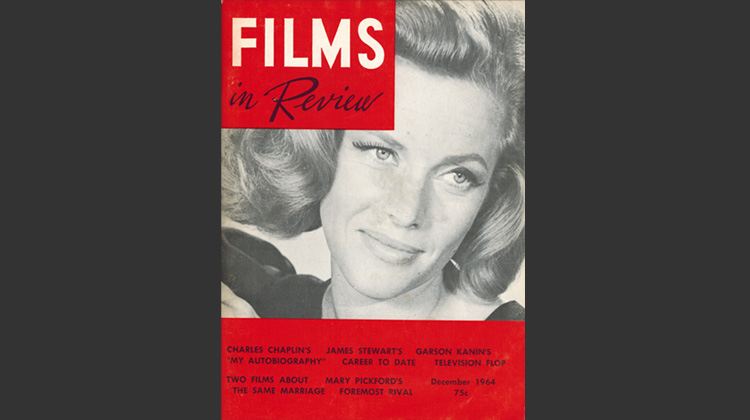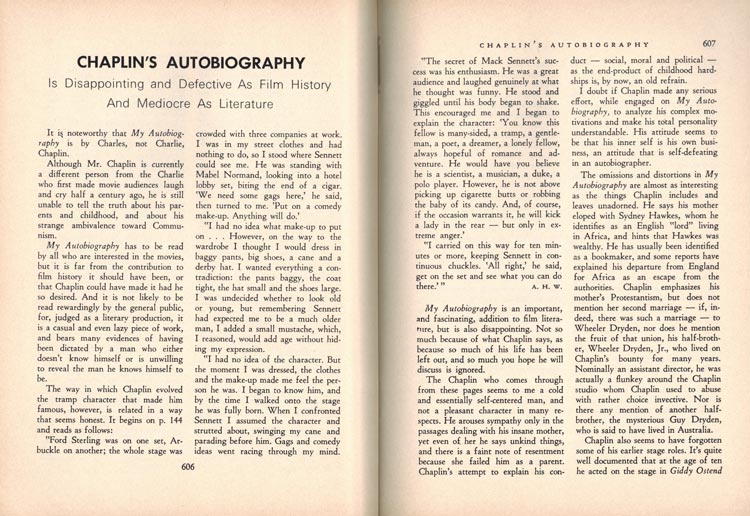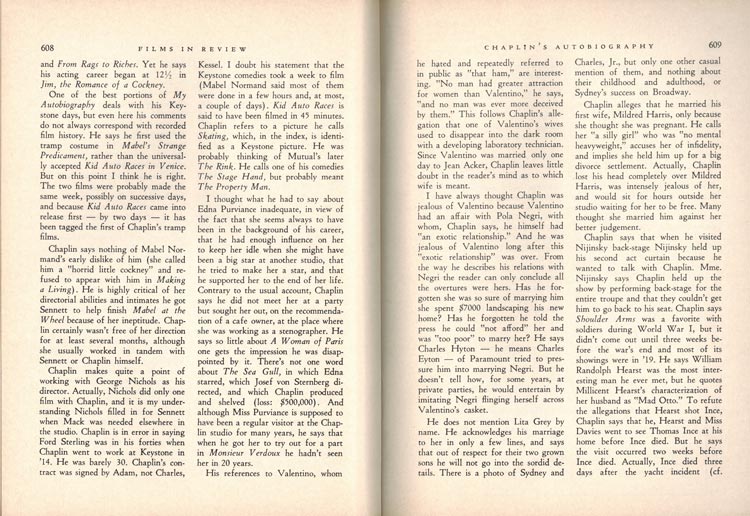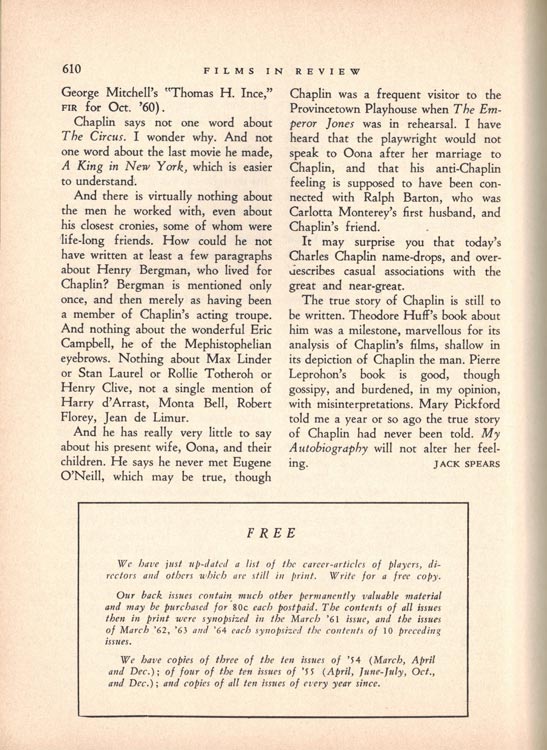The recent release of Salinger draws attention to a historical figure not widely associated with the eponymous author: Charlie Chaplin.
The film advances the theory that the author never fully recovered from the heartbreak of having Oona O’Neill (daughter of playwright Eugene O’Neill) choose Chaplin over him. The following text is excerpted from a review that was first published in Films in Review magazine in December, 1964. Highlights from the Salinger Q&A can be found here.
***
Chaplin’s Autobiography: Is Disappointing and Defective As Film History And Mediocre As Literature
By Jack Spears
It is noteworthy that My Autobiography is by Charles, not Charlie Chaplin.
Although Mr. Chaplin is currently a different person from the Charlie who first made movie audiences laugh and cry half a century ago, he is still unable to tell the truth about his parents and childhood, and about his strange ambivalence toward Communism.
“The Chaplin who comes through in these pages seems to me a cold and essentially self-centered man”
My Autobiography has to be read by all who are interested in the movies, but it is far from the contribution to film history it should have been, or that Chaplin could have made it had he so desired. And it is not likely to be read rewardingly by the general public, for, judged as a literary production, it is a casual and even lazy piece of work, and bears many evidences of having been dictated by a man who either doesn’t know himself or is unwilling to reveal the man he knows himself to be.
The Chaplin who comes through in these pages seems to me a cold and essentially self-centered man, and not a pleasant character in many respects. He arouses sympathy only in the passages dealing with his insane mother, yet even of her he says unkind things, and there is a faint note of resentment because she failed him as a parent. Chaplin’s attempt to explain his conduct — social, moral and political — as the end-product of childhood hardships is, by now, an old refrain.
…And he has really very little to say about his present wife, Oona, and their children. He says he never met Eugene O’Neill, which may be true, though Chaplin was a frequent visitor to the Provincetown Playhouse when The Emperor Jones was in rehearsal. I have heard that the playwright would not speak to Oona after her marriage to Chaplin, and that his anti-Chaplin feeling is supposed to have been connected with Ralph Barton, who was Carlotta Monterey’s first husband, and Chaplin’s friend.




